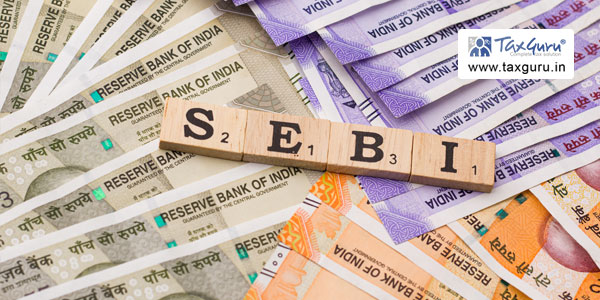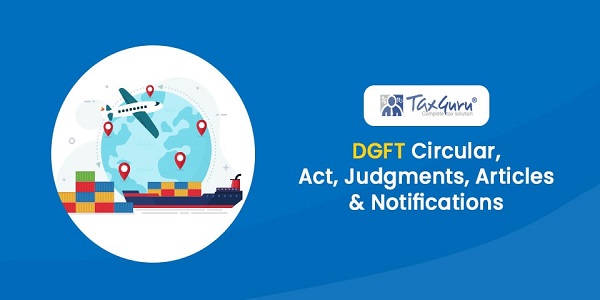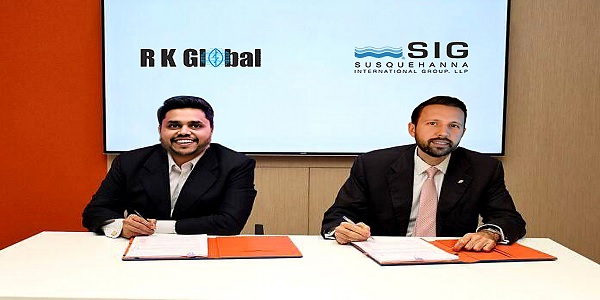Case Law Details
UMW Sher (L) Ltd. Vs Assessing Officer (ITAT Delhi)
ITAT Delhi held that receipts from leasing/ hiring of Rigs are taxable as business profit under section 44BB of the Income Tax Act. Such receipts are not in the nature of royalty and hence cannot be taxed under section 9(1)(vi) read with section 115A of the Income Tax Act.
Facts- The short issue arising for consideration in these appeals is, whether the receipts from leasing/hiring of RIGs are taxable as business profits under section 44BB of the Act on gross basis or they are in the nature of royalty, hence, taxable under section 9(1)(vi) read with section 115A of the Act.
Conclusion- We held that in our view, the conclusion drawn by learned DRP that the amounts received are in the nature of royalty under section 9(1)(vi) read with section 115A of the Act is unacceptable.
On the contrary, we accept the position taken by the assessee in offering the income to tax under section 44BB of the Act, as, it is in accordance with the statutory provision.
FULL TEXT OF THE ORDER OF ITAT DELHI
Captioned appeals have been filed by the assessee assailing the final assessment orders passed under section 143(3) read with section 144C(13) of the Income-tax Act, 1961 (for short ‘the Act’) pertaining to assessment years 2012-13 and 2017-18, in pursuance to directions of learned Dispute Resolution Panel (DRP).
2. The short issue arising for consideration in these appeals is, whether the receipts from leasing/hiring of RIGs are taxable as business profits under section 44BB of the Act on gross basis or they are in the nature of royalty, hence, taxable under section 9(1)(vi) read with section 115A of the Act.
3. Briefly the facts relating to this issue are, the assessee is a non-resident corporate entity incorporated under the laws of Malaysia and is a tax resident of Malaysia. As stated by the Assessing Officer, the assessee is engaged in the business of leasing of machines and equipments used for exploration and extraction of mineral oils, providing services on-shore to contract drilling and engineering services for the oil and gas industries. Jaybee Energy (P.) Ltd. (JEPL) an Indian Corporate entity, entered into a contract with M/s. Oil India Ltd. for drilling and exploration of mineral oils in the North Eastern States of India. The assessee, in turn, entered into a contract with JEPL for supply/lease/hire of RIGS to be used by the contractee for drilling and exploration of mineral oils. In the assessment years under dispute, the assessee received certain amounts towards leasing/hiring of the Rigs to JEPL. In the returns of income filed for the impugned assessment years, the assessee offered the income from hiring/leasing of rigs as business profits to be taxed on gross/presumptive basis under section 44BB of the Act at 10%. In course of assessment proceedings, the Assessing Officer, after calling for and examining the contract between Oil Indian and JEPL as well as the contract between the assessee and JEPL was of the view that the amounts received by the assessee are in the nature of Fees for Technical Services (FTS) under section 9(1)(vii) read with section 44D and 115A of the Act. Accordingly, he completed the assessments by treating the amounts received by the assessee as FTS. Against the assessment orders so passed, the assessee raised objections before learned DRP.
4. After considering the submissions of the assessee in the context of facts and materials on record, learned DRP held that the amounts received by the assessee from leasing/hiring of rigs are in the nature of royalty under section 9(1)(vi) read with section 115A of the Act as well as Article 12 of India – Malaysia DTAA.
5. We have heard at length learned Representatives appearing for the parties and perused materials on record. We have also applied our mind to the judicial precedents cited before us. As discussed earlier, the dispute between the parties is qua the nature of receipts from hiring/leasing of rigs, whether to be treated as business profits under section 44BB of the Act as claimed by the assessee or royalty under section 9(1)(vi) read with section 115A and as per the definition of royalty under the treaty provision. As far as the factual aspect of the issue is concerned, it is established on record that the assessee has given on hire/lease rigs to an Indian entity, who intended to employ them for drilling and exploration of mineral oils in the North Eastern States in India, in pursuance to the contract entered with M/s. Oil India. Thus, it is beyond dispute, the amounts received by the assessee subject to tax in the impugned assessment years are towards leasing/giving on hire rigs to be used in the drilling/exploration of mineral oils. It is a fact on record that the assessee has offered the income received from giving on hire/leasing of rigs as business profits under section 44BB of the Act. While the Assessing Officer at the time of framing the draft assessment orders has treated it as FTS, learned DRP is of the view that the receipts are in the nature of royalty under section 9(1)(vi) of the Act.
6. Before we proceed to determine the nature of the receipts, whether business profit or royalty, it is necessary to deal with certain provisions of the Act. Section 44BB of the Act was introduced to the Statute by Finance Act, 1987 with retrospective effect from 01.04.1983. Subsequently, the provision was amended by Finance Act, 1988 by making it applicable to nonresidents with retrospective effect from 01.04.1983. Section 44BB in its present form reads as under:
“Special provision for computing profits and gains in connection with the business of exploration, etc., of mineral oils.
44BB. (1) Notwithstanding anything to the contrary contained in sections 28 to 41 and sections 43 and 43A, in the case of an assessee, being a nonresident, engaged in the business of providing services or facilities in connection with, or supplying plant and machinery on hire used, or to be used, in the prospecting for, or extraction or production of, mineral oils, a sum equal to ten per cent of the aggregate of the amounts specified in sub-section (2) shall be deemed to be the profits and gains of such business chargeable to tax under the head “Profits and gains of business or profession” :
Provided that this sub-section shall not apply in a case where the provisions of section 42 or section 44D or section 44DA or section 115A or section 293A apply for the purposes of computing profits or gains or any other income referred to in those sections.
(2) The amounts referred to in sub-section (1) shall be the following, namely :—
(a) the amount paid or payable (whether in or out of India) to the assessee or to any person on his behalf on account of the provision of services and facilities in connection with, or supply of plant and machinery on hire used, or to be used, in the prospecting for, or extraction or production of, mineral oils in India; and
t(b) he amount received or deemed to be received in India by or on behalf of the assessee on account of the provision of services and facilities in connection with, or supply of plant and machinery on hire used, or to be used, in the prospecting for, or extraction or production of, mineral oils outside India.
(3) Notwithstanding anything contained in sub-section (1), an assessee may claim lower profits and gains than the profits and gains specified in that subsection, if he keeps and maintains such books of account and other documents as required under sub-section (2) of section 44AA and gets his accounts audited and furnishes a report of such audit as required under section 44AB, and thereupon the Assessing Officer shall proceed to make an assessment of the total income or loss of the assessee under sub-section (3) of section 143 and determine the sum payable by, or refundable to, the assessee.
Explanation.—For the purposes of this section,—
(i) “plant” includes ships, aircraft, vehicles, drilling units, scientific apparatus and equipment, used for the purposes of the said business;
(ii) “mineral oil” includes petroleum and natural gas.
7. The heading of the provision itself makes it clear that this is a special provision for computing profits and gains in connection with the business of exploration, extraction etc. of minerals oils. On a reading of the plain text of the provision contained in subsection (1), it becomes clear that the provision has overriding effect on some other provisions of the Act, such as, sections 28 to 41 and sections 43 and 43A. It further reveals that the provision is application to a non-existent entity engaged in the following activities:
i. Prospecting for or extraction or production of mineral oils.
ii. Services for in relation to prospecting for or extraction or production of minerals oils.
iii. Providing facilities in connection with prospecting for or extraction or production of minerals oils.
iv. Supplying plant and machinery on hire used or to be used in prospecting for or extraction or production of minerals oils.
8. The provision says, the receipts from the aforesaid activities can be taxed on a presumptive basis by applying the rate of 10% on gross basis. However, the proviso to section 44BB(1) makes it clear that the provision will not apply in a case where the provisions of section 44 or section 44D or section 44DA or section 115A or section 293A are applicable for computing profits or gains or any other income referred in those sections.
9. Undisputedly, the activity carried on by the assessee falls within the third category, viz., supplying plant and machinery on hire used or to be used in prospecting, or extraction or production of mineral oils. Section 9 of the Act speaks of certain categories of income deemed to accrue or arise in India, whether directly or indirectly through any business connection in India or through any property in India or through or from any asset or source of income in India. Clause (vi) of section 9(1) provides for taxation of royalty by applying deeming fiction. Explanation (2) to section 9(1)(vi) defines the term ‘royalty’. The term ‘royalty’ in Explanation (2) initially was in a restricted form. However, the scope of royalty under explanation (2) was enlarged with introduction of clause (iva) w.e.f. 01.04.2002, which reads as under:
“Income deemed to accrue or arise in India.
9. (1) The following incomes shall be deemed to accrue or arise in India :—
37(i) to (v)…………………………………….
(vi) income by way of royalty payable by—
(a) …………………………………..
(b) ………………………………….
(c) ……………………………….
……………………………………..
Explanation 2.—For the purposes of this clause, “royalty” means consideration (including any lump sum consideration but excluding any consideration which would be the income of the recipient chargeable under the head “Capital gains”) for—
(i) ………………………………;
(ii) ………………………………;
(iii) ………………………………;
(iv) ………………………………..
(iva) the use or right to use any industrial, commercial or scientific equipment but not including the amounts referred to in section 44BB;”
10. A careful reading of clause (iva) to explanation 2 would make it clear that the term ‘royalty’ will also mean any amount received towards the use or right to use of any industrial/commercial or scientific equipment. However, the second limb of the provision excludes the amounts referred to in section 44BB of the Act from the definition of royalty given under explanation -2. In other words, the amounts received in connection with activities enumerated under sub-section (1) to section 44BB, even if in the nature of royalty, has to be treated as business profits in case of a non-resident entity not having any Permanent Establishment (PE) in India. This is so because, section 44BB does not require existence of PE. Interestingly, similar receipts falling within the definition of royalty as defined in explanation 2 to section 9(1)(vi), which also includes equipment royalty, would be taxable under section 44DA of the Act, in a case, where the non-resident entity has a PE in India. Thus, sections 9(1)(vi), 44BB and 44DA apply in different situations. While existence of PE is a pre-condition for applicability of section 44DA, it is not so in case of 44BB of the Act.
11. In fact, in case of Paradigm Geophysical Pty. Ltd. Vs. CIT, 2020 (3) TMI 969 relied upon by the departmental authorities, the Hon’ble Jurisdictional High Court, while interpreting the provisions contained under section 44BB and 44DA of the Act, have observed that the distinguishing feature between the two provisions is, in section 44BB one does not find any reference to a PE in India and the services contemplated therein are more specific than what is contemplated under section 44DA. As rightly observed by learned DRP, and it is a fact also, section 44BB is a special provision applicable to certain categories of income earned by a non-resident from activities related to the business of extraction/exploration of mineral oils. One of the activities coming under the said provision relates to giving on hire/leasing of equipments to be used in exploration or extraction of mineral oil. In the facts of the present appeal, undisputedly, the assessee has given on hire/lease equipments used or to be used in extraction/exploration of mineral oils. Therefore, in our view, the amounts received by the assessee are fully covered under the provisions of section 44BB and taxable on gross basis at the rate of 10%.
12. In our view, learned DRP has made a fundamental error in ignoring the exceptions provided under clause (iva) to explanation 2 to section 9(1)(vi) of the Act while concluding that the amount received is in the nature of royalty under section 9(1)(vi) read with section 115A of the Act. One more fundament error committed by learned DRP is in holding that section 44BB will be applicable only in a case where non-resident has a PE in India. The aforesaid conclusion of learned DRP is based on complete misinterpretation of the provision and goes against the very essence of the provision, which does not put the condition of existence of PE for applicability of the provision.
13. Thus, in our view, the conclusion drawn by learned DRP that the amounts received are in the nature of royalty under section 9(1)(vi) read with section 115A of the Act is unacceptable.
14. On the contrary, we accept the position taken by the assessee in offering the income to tax under section 44BB of the Act, as, it is in accordance with the statutory provision. In course of hearing, learned counsel appearing for the assessee has cited the following decisions in support of its claim that the amount is taxable under section 44BB of the Act:
1. Schlumberger Asia Services Ltd. Vs. Deputy Director of India Tax (International Taxation), 2022 (6) TMI 833 (ITAT, Delhi)
2. Louis Dreyfus Armateures Sas Vs. ADIT, International Taxation, 2015 (2) TMI 899 (ITAT, Delhi)
3. DIT Vs. Vs. M/s. RPS Energy Pty. Ltd., 2018 (4) TMI 927 (ITAT, Delhi)
4. Paradigm Geophysical Pty. Ltd. Vs. CIT (International Taxation)-3, 2020 (3) TMI 969 (Delhi High Court)
5. DIT vs. OHM Ltd., 2012 (12) TMI 1091 (Delhi High Court)
15. In view of our reasonings in the foregoing paragraphs, we do not intend to discuss in detail the ratio laid down in these decisions. Suffice it to say, the conclusion drawn by us is fully supported by the ratio laid down in these decisions. Accordingly, we direct the Assessing Officer to compute the income in both the assessment years under dispute under the provisions of section 44BB of the Act.
16. In the result, appeals are allowed, as indicated above. Order pronounced in the open court on 1st February, 2023

























